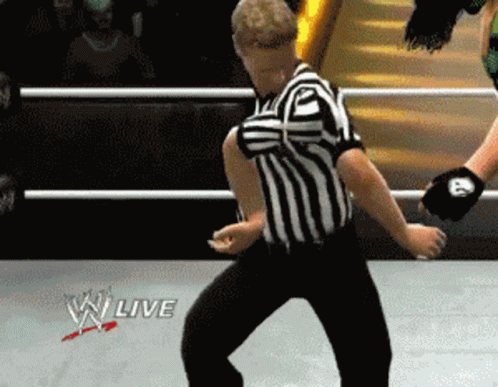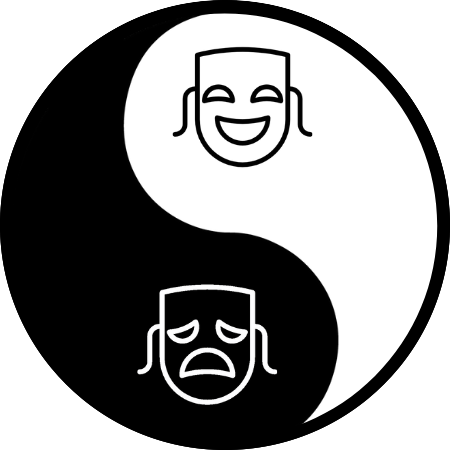On Video Game Voice Acting
So you want to become a video game voice actor? This one's for you.
Here's a mind-blowing stat: the value of the global video game industry is expected to hit $321 billion (USD) by 2026.[1] $321 billion. $321,000,000,000. Like, 🤯.
Suffice to say, now's not a bad time to dip your toes in the water if you're interested in the medium. The pretty pennies aside, it's a shed tonne of fun and offers abundant opportunity to stretch and test those actor muscles.
For this post, we scoured (and will continue to scour) the maaany conversations Coach T has had with fellow video game VAs [voice actors] to pick out a few common threads and pertinent insights. We've also linked to the full interviews if you'd like to dive deeper into a particular individual's experience.
Last updated: September 2024
👉🏼 Monthly subscription
👉🏼 Yearly subscription (17% discount)
The general consensus
- "The world of gaming is one of the most exciting and creative industries anybody can be a part of." ~ Bryan Larkin (Horizon series)
- "Do it! I'd recommend it to anyone!" ~ Charlotte McBurney (A Plague Tale series)
- "Go for it!" ~ Leah de Niese (Overwatch 2)
- "Gaming work is so attractive because the storytelling possibilities feel almost infinite. The realm of potential exceeds that of stage or screen, and with technology developing at the exponential rate it is, that will only continue to be the case." ~ Tahlia Norrish (Bleeding Edge)
On finding work
It's all about relationships.
- "I'd worked with the casting director on a few occasions before." ~ Ally Murphy (Bendy and The Dark Revival)
- "Recommendations [are] actually a huge thing in voice acting." ~ Chris Tester (Tin Hearts)
- "Most of my auditions now come from recommendations ... [but] getting the work is a job on its own — you have to be constantly searching, networking and keeping up to date with the industry." ~ Jay Britton (Total War: Warhammer III)
- "[From] relationships I've built with the games community over years of networking and direct marketing." ~ Natalie Winter (Lego Star Wars: The Skywalker Saga)
- "There are people here who are looking – who are willing to help. So, that's the first thing: join the community; find your tribe." ~ Leonie Schliesing (Cyberpunk 2077: Phantom Liberty)
On the craft
Same, same — but different.
- "Voice acting comes with a small 'v' and a big 'A' ... If you have a cool voice, that's great, but really, there's space for every single voice in this industry. You need to be able to act authentically, connect to a text and to a character, and convey emotion through your voice. Acting is the most important part." ~ Schliesing
- "The disciplines of craft are the same. Performance capture requires you to slightly heighten or enhance your movement more than you would do in real life because gaming is such a visually driven medium. You often have to physicalise the thoughts so that the gamer can identify with the characters with no second-guessing. [That's] similar in some regards to theatre, but vocally it's closer to TV and film. It has to sound natural and conversational." ~ Larkin
- "[Theatre is] such a good foundation, [but] in theatre, your energy is dispersed over your whole body. [In voice-over] it's entirely concentrated. That's a lot of energy in one area." ~ McBurney
- "I'd really recommend seeing a vocal coach who can equip you with techniques to make sure you can go for a four-hour session and not damage your voice." ~ Murphy
- "Due to the confidentiality of working in video games and NDAs [non-disclosure agreements], you're rarely ever given a script or character before you record. In many ways, [this] means there's no preparation beforehand. You rely almost entirely on your strengths and the versatility of your vocal range." ~ Larkin
- "Get good at going in [to auditions and recording sessions] cold. Get good at improvisation and just taking the moment and running with it. The vast majority of the time – at least 50% of the games I work with – I get the script at the beginning of the session, and that's it. You can ask some questions to begin with, but the clock is ticking, darling. You need to be able to make strong, instinctive choices right from the get-go. It's that cliché we all hear, but it's true: make the big choice because you can always be reined back in." ~ Tester
- "It's always good to have other ideas up your sleeve in case the team wants to take things in a different direction, so you have options." ~ Emma Ballantine (Final Fantasy XIV)
On recording days
They're legit.
- "It's such an interesting part of voice acting – where you don't have that direct interaction with your acting partner ... You have to be an even better actor, really, because you have to create all of those emotional connections and the circumstances – and all while stood in a box in front of a microphone." ~ Schliesing
- "I did not foresee how demanding and intense the recording process was going to be. The sessions were short, but the amount of material to cover was vast." ~ Norrish
- "I start the day before, making sure I'm well hydrated and rested before a session ... Before the session, I do some warm-ups with voice coach Nic Redman (she has a fab podcast called The Voice Coach Podcast), and I use a SOVT [Semi-Occluded Vocal Tract] straw." ~ Murphy
- "I warm up my voice and run over some articulation exercises in the car on my way to record. I always take a large thermos flask of hot lemon, honey, and ginger to soothe my throat." ~ Nicola Kāwana (Apex Legends)
- "I warmed up every morning. I had a very intensive yoga routine in the morning. I took a lot of naps during my breaks because my character required a lot of energy." ~ Michelle Rambharose (New Tales from the Borderlands)
- "You can get a kind of whiplash — coming in and out of character — so I would knit in breaks." ~ McBurney
- "It was hard at first – switching in [and out of] character. So I would have little things I would do before starting to record. I would always say 'Milo', and it would get me into my Aussie accent. I would have things in my head [such as] the way she would hold her body, and I would try and embody that while I was recording, to help me get out of myself and become her." ~ Nancy Curtis (Wayward Strand)
- "I would also have a pretty intensive cool down, especially if I was doing emotionally heightened content that day ... I would make sure to come home and do some yoga, take a shower, talk to a friend, and move through whatever I needed to. I had a lot of systems in place to take care of my body and to take care of my spirit ... Self-care practices make this work sustainable. Similar to an action movie, [performance capture] is really heightened circumstances. You're running for your life all the time, you're screaming, you're jumping. There are a lot of life-or-death situations. So, identifying how to take care of your voice before and after, and take care of your body before and after, is really important." ~ Rambharose

Thoughts / feedback / challenges? We'd genuinely love to hear.
Need some 1-On-1 attention? Book your coaching session today.
Citations:
[1] https://www.pwc.com/gx/en/industries/tmt/media/outlook/outlook-perspectives.html
